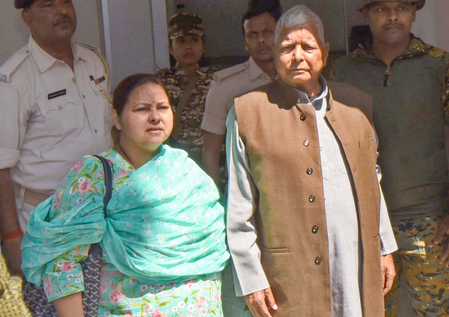
Kinshasa, July 11 (IANS) The cholera outbreak in the Democratic Republic of the Congo (DRC) has reached an “acute phase,” with infections still rising, Health Minister Roger Kamba said.
Since January 2025, over 33,000 cases and a fatality rate of around 2 per cent have been recorded nationwide, Kamba said at a press conference.
The 2025 case count has already surpassed 2024’s total of 31,749, according to the World Health Organization (WHO).
Up to 17 of the country’s 26 provinces have been affected so far, up from 14 reported just a day earlier, Kamba said, warning against the rapid spread of disease.
The capital Kinshasa, home to more than 1.7 million people, is currently registering around 130 new cases weekly, with a significant number proving fatal, the minister said.
In response, the government is opening new treatment centres in Kinshasa and offering free care to confirmed patients.
The DRC is also facing a resurgence of mpox, Kamba added, calling the current health situation a “critical crisis.”
The DRC declared a cholera outbreak on May 5, following laboratory confirmation of cases in multiple provinces, Xinhua news agency reported.
According to the WHO, Cholera is an acute diarrhoeal infection caused by consuming food or water contaminated with the bacterium Vibrio cholerae. It is a global public health threat and indicates inequity and lack of social and economic development. Access to safe water, basic sanitation and hygiene is essential to prevent cholera and other waterborne diseases.
Most people with cholera have mild or moderate diarrhoea and can be treated with oral rehydration solution (ORS). However, the disease can progress rapidly, so starting treatment quickly is vital to save lives. Patients with severe disease need intravenous fluids, ORS and antibiotics.
Countries need strong epidemiological and laboratory surveillance to swiftly detect and monitor outbreaks and guide responses.
Cholera outbreaks occur regularly in some countries. In others, they are less frequent, and it may be years between outbreaks. Cholera is linked to limited access to safe water, basic sanitation facilities and poor hygiene practices. This may be due to conflict, population displacement, climate events like cyclones, floods or drought, and lack of investment in maintaining and improving WASH services and infrastructure.
The number of cholera cases reported to WHO has continued to rise in recent years. In 2023, 535 321 cases and 4007 deaths were reported to WHO from 45 countries. The discrepancy between these figures and the numbers estimated by researchers is likely due to limited surveillance systems and cases not being recorded out of fear of repercussions for trade and tourism.
–IANS
int/jk/rs






